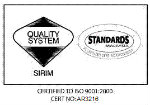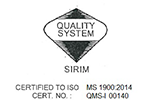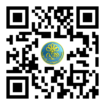Revisiting Online Forex Trading Fatwa
Several state fatwas and the International Islamic Fiqh Academy have ruled that online forex trading is contrary to Shariah.It is therefore haram. Despite an unlicensed forex broker having been listed on the Securities Commission’s Investor Alert List, online forex trading activity continues to exploit people’s money. It is about time to have an open review to revisit the fatwa and the facts about online forex trading.
The decision by the National Fatwa Council (98th JKMKI in February 2012) and several state fatwas such as Perlis (2016), Negeri Sembilan (2018), and Sabah (2012) agreed not to allow online forex trading because the transaction involves ribāwi goods (i.e currency) and from the jurisprudence perspective, currency trading is subjected to the law of bay’ al-Sarf (currency exchange contract that requires specific terms and conditions).
Another reason for the prohibition of online forex trading is because of the absence of handing over. This comprise the elements of maisir (gambling) through speculation, riba (through leverage facilities), gharar (ambiguity arising from combining two contracts of sale and loan) as supported by scientific findings of many academic journals even though forex trading may make claims to be Shariah-compliant (Jones, 2015). This view is also in line with the fatwa of the Indonesian Ulema Council (MUI, 2002) and the International Islamic Fiqh Academy (2006).
The majority of scholars believe that money falls under the law on ribāwi goods such as gold and silver. Islamic scholars including Imam al-Ghazali, Ibn Taymiyyah, Ibn Rushd, Al-Qarafi, and most recently Sheikh Taqi Usmani do not consider ribāwi [dinars (gold) and dirhams (silver) as currencies] be traded as commodities. In hisruling, Mufti Taqi Usmani explains:
…this transaction is not Shariah-compliant. The main condition is that there is no transfer of ownership, what is more, there are elements that are not in line with Shariah, such as in forward and short sales. Furthermore, the original purpose of foreign exchange is for using it in the country concerned. Making the currency trading only for ‘profit’ is against Islamic economic philosophy.
Simply put, forex is an exchange of currency that one can buy/sell as one wishes and sell/buy it when the price increases/decreases. However, online forex trading is not necessarily what we simply think it to be . First, one should understand that a currency only moves a tiny fraction in a single day. For one to make a profit out of it, one should take advantage of investing/trading with a huge amount of money. So, how does one invest a huge amount of money if one does not own such a huge amount of money? That is where the leverage comes into the picture.
The forex broker/ company will give the excess leverage to every account holder, for example, in every dollar you have, you can take a position with 100 or 500 more positions in the trade. With this, it will magnify your returns while the broker earns from the money he loaned with a set of contractual returns on commission and brokerage fee in every transaction he makes. There is a Shariah issue on fixed returns on loan for both the contract and transaction.
Some may claim that online forex trading is not a loan contract or a combination of two or more contracts in one transaction. , Online forex trading falls under derivatives, the contract of an instrument that does not have intrinsic value in it, rather it is derived from another asset i.e currency. If that is the case, derivatives are explicitly not permissible in Islam because of the absence of underlying intrinsic value.
It is interesting to note that online forex trading is not trading. Perhaps that is the solid argument as to why the qabd (exchange/surrender) does not apply because traders do not even buy or sell any currency to make them fall under the contract of sarf (with strict conditions set by Islam for ribawi transaction), they do not want and possess any currency, but rather they take a position to short or long ? shorten or lengthen the currency pair. We even could rationally call this betting (gambling is more accurate).
How about the “Islamic account” that we hear from brokers who claim it to be so? If so, then we should be able to acquire its shariah advisor who has been accredited to approve such an ambiguous contract and we want to learn about its justification. Even more puzzling, there are some brokerage firm agents, normally called Introducing Broker (IB), who cite the views of some ”ustaz” in their campaign to recruit new account holders, while at the same time ignoring several long issued fatwas.
Forex is an online hosting platform (with no competitor) set as a centralised database on the server over a few places and processed using an artificial algorithm mechanism with sophisticated computational power. The broker listing their interest of a share of making a profit pays the parent hosting platform for listing its company. The IB becomes the promoter with a bit of share in deposit and trading commission for them to encourage trading (attract deposit) and recruit new traders. Indeed, fFurther study is welcomed to gather statistics and ratios of those who make profit/loss out of online forex trading.
In conclusion, the credibility of the fatwa is not questionable because online forex trading or similar schemes such as index trading, derivative, option or futures contract are not allowed under Islamic law. This signifies how Islam has invested its principles and scholarly argumentation to protect the interest of its ummah. Undoubtedly, an easy-rich scheme will compromise Islamic prohibitions and demerit economic productivity of man.




